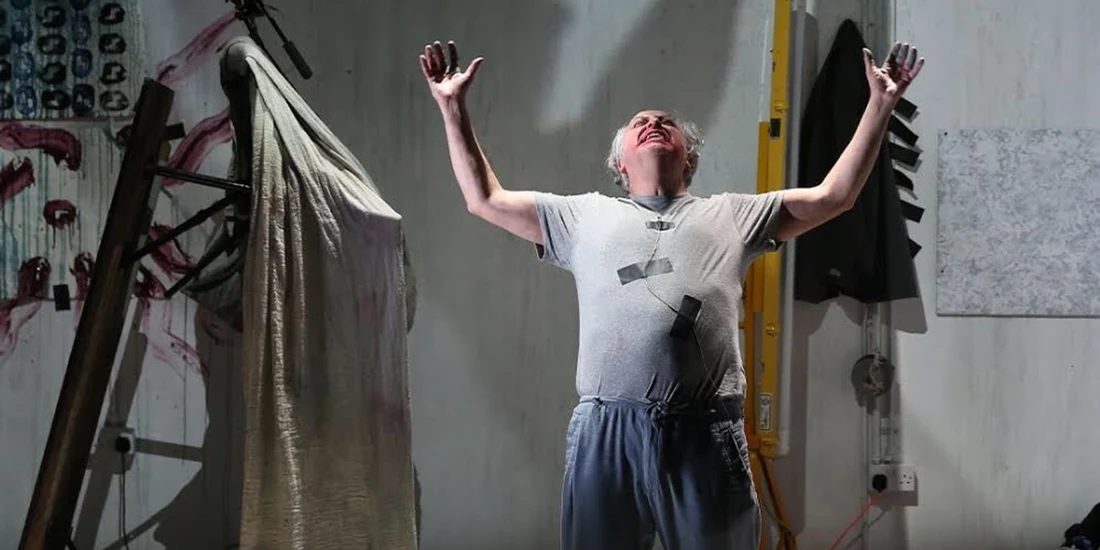Review of Incantata at Irish Repertory Theatre
The idea itself — making a 45-stanza poem about the poet's lost love into a drama — is ambitious at best.
The alchemy required to render Paul Muldoon's elegiac poem Incantata into a theatre piece, and then hang it on the albeit broad shoulders of a single actor, Stanley Townsend, might be a bridge too far. And to tell you the truth, I'm not sure it isn't.
This is a challenging bit of theatre, so bring your "A" game. Muldoon's tribute poem, written in 1994, is a conversation (though only the poet speaks) with his now deceased lover, the American artist and printmaker Mary Farl Powers. Powers died of cancer at 43; she opted to treat her disease with homeopathic remedies as she believed that everything — from the color of the eyelashes of her father's spaniels to her death, were predetermined. Her lover's loss and rage, his search for art in that loss, for meaning in anything after her death, is the essence of the story.
It is a one-man show and Stanley Townsend thoroughly inhabits the character of the grieving man, presumably Muldoon. That said, director Sam Yates populates his stage at the Irish Repertory Theatre. Townsend addresses himself to Mary and she is an almost corporeal presence. She is a wraith, a slender bundle of soft fabric on a folding chair, with a video camera for a head. The sorrowing man speaks exclusively to "her."
When the man speaks to Mary directly he is addressing the camera. The output — close shots of his pleading eyes, his angry mouth, his sullen remove — are all projected on the back wall. So, at times there are several men on stage, and some of them are addressing the audience.
You actually smell the potatoes piled in the corner, the man's work product. He is a print maker, exacto-ing the face of raw potatoes, dipping them in paint and transferring the image to paper. The audience is occasionally blinded by the dodgy lighting this artist depends on in the cramped and crummy studio that is our set, presumably metaphor for his chaotic state of mind.
Incantata is not for everyone. It is rife with mythological and classical references punctuated with pop culture mentions to keep you focused. Music played on a crappy cassette player — "Silhouettes" and "I Love How You Love Me" — is chosen to ground us in time, but it also underscores the loneliness of the man before us. Later, as he accuses his lost love of pretending good health, when she must have known she was dying, he suggests a John Field nocturne.
See, this is what I mean, this piece is dense. I could not escape the feeling that I was missing things. There would be the single laugh in an otherwise silent theater, three rows behind me and I'd wonder what clever reference had sailed over my head. I felt like I hadn't studied for this test. So, if Incantata is your favorite poem, you will be entranced. And, if, like me, you are game to give your attention to something challenging, more than engaging, I'd say go for it.
(Photo by Carol Rosegg)
Originally published on
